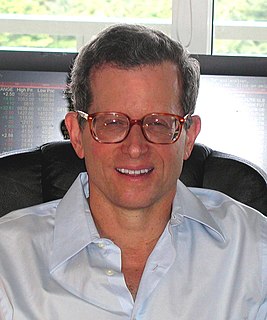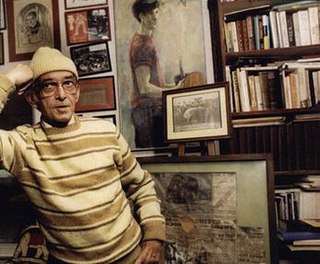A Quote by Hunter S. Thompson
There is probably some long-standing "rule" among writers, journalists, and other word-mongers that says: "When you start stealing from your own work you're in bad trouble." And it may be true.
Related Quotes
Usually, when you're talking about work with other writers it's because something seriously bad is going on with your work and you've absolutely thrown out a lifeline and you're hoping that someone will help you with something. Either there's some bad feeling you have about the work, or sometimes it's not specific - just kind of solidarity.
Be sincere and true to your word, serious and careful in your actions; and you will get along even among barbarians, But if you are not sincere and untrustworthy in your speech, frivolous and careless in your actions, how will you get along even among your own neighbors? When stand, see these principles in front of you; in your carriage see them on the yoke. Then you may be sure to get along.
A newspaper, as I'm sure you know, is a collection of supposedly true stories written down by writers who either saw them happen or talked to people who did. These writers are called journalists, and like telephone operators, butchers, ballerinas, and people who clean up after horses, journalists can sometimes make mistakes.
I read the other day some verses written by an eminent painter which were original and not conventional. The soul always hears an admonition in such lines, let the subject be what it may. The sentiment they instil is of more value than any thought they may contain. To believe your own thought, to believe that what is true for you in your private heart is true for all men, - that is genius.
A lot of attention has been paid in Latin America to the new generation of nonfiction writers, authors like Julio Villanueva Chang, Diego Osorno, Cristóbal Peña, Gabriela Wiener, Leila Guerriero, Cristian Alarcón, among others. These are writers doing important, groundbreaking work. So the talent is there, as is the habit of radio listenership, and what we propose to do is unite the two. We want to have these immensely gifted journalists - men and women who've already revitalized the long-form narrative - we want them to tell their stories in sound.
Listening is a rare happening among human beings. You cannot listen to the word another is speaking if you are preoccupied with your appearance, or with impressing the other, or are trying to decide what you are going to say when the other stops talking, or are debating about whether what is being said is true or relevant or agreeable.
Such matters have their place, but only after listening to the word as the word is being uttered.
Listening is a primitive act of love in which a person gives himself to another’s word, making himself accessible and vulnerable to that word.
I don’t ask writers about their work habits. I really don’t care. Joyce Carol Oates says somewhere that when writers ask each other what time they start working and when they finish and how much time they take for lunch, they’re actually trying to find out, "Is he as crazy as I am?" I don’t need that question answered.
At some point I started getting published, and experienced a meager knock-kneed standing in the literary world, and I started to get almost everything that many of you graduates are hoping for--except for the money. I got a lot of things that society had promised would make me whole and fulfilled--all the things that the culture tells you, from preschool on, will quiet the throbbing anxiety inside you. I got some stature, the respect of other writers, even a low-grade fame. The culture says these things will save you, as long as you also manage to keep your weight down. But the culture lies.
We cannot attain to the understanding of Scripture either by study or by the intellect. Your first duty is to begin by prayer. Entreat the Lord to grant you, of His great mercy, the true understanding of His Word. There is no other interpreter of the Word of God than the Author of this Word, as He Himself has said, "They shall be all taught of God" (John 6:45). Hope for nothing from your own labors, from your own understanding: trust solely in God, and in the influence of His Spirit. Believe this on the word of a man who has experience.

































